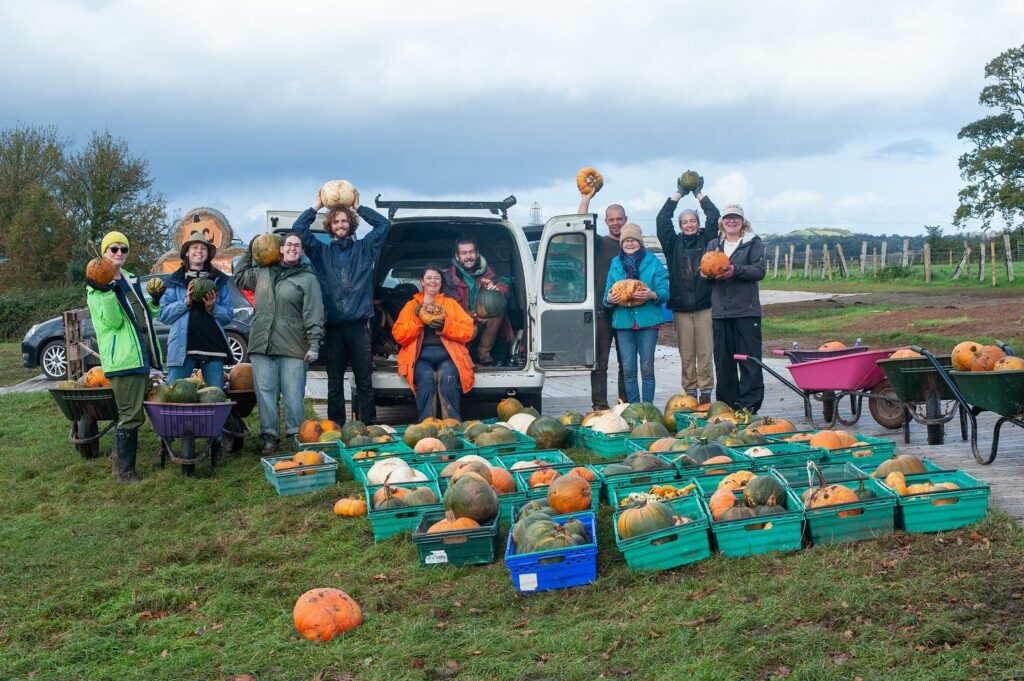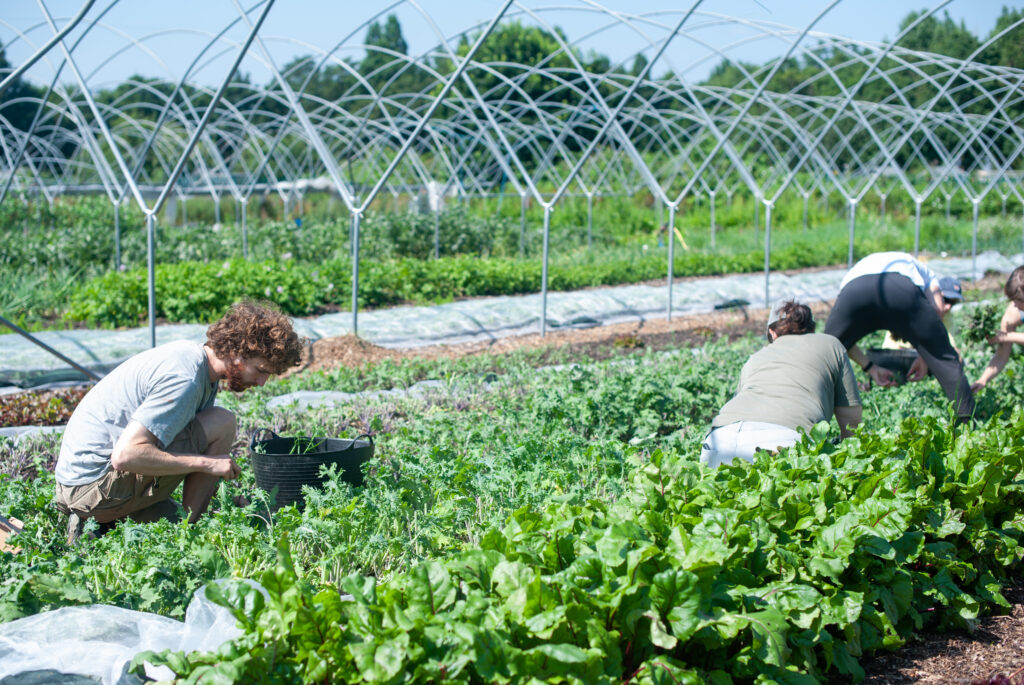Food waste is a huge global problem and tackling it in a variety of ways at all levels will be essential for a rapid transition towards a sustainable food system. Bristol Gleaning Network is a community-led project taking action to help build a more resilient and sustainable food system at a human-scale and on a local level by ensuring that crops are not wasted. We are one of a growing number of gleaning groups across the country, set up with the support of Feedback Global, a campaign organisation working to transform our food system.
Gleaning is the act of harvesting surplus crops from farmers’ fields that are left behind for a variety of reasons. It is an age-old practice that is being harnessed now to reduce food waste, help alleviate food insecurity, and reconnect people with where their food comes from.
Based in Bristol, United Kingdom, the Bristol Gleaning Network brings teams of volunteers to local farms to harvest surplus fruit and vegetables and then redistribute the produce to food projects who are supporting people in vulnerable situations. Since September 2020, 130 volunteers have saved over 7 tonnes of food.
A typical glean involves getting your hands dirty in the fields to harvest the crops that have not made the cut for commercial sale. Many farmers have been really encouraging and are delighted to see their crops going to feed people, rather than being ploughed back into the ground or composted. We also try to offer additional help on the fields to thank the farmers for their surplus. The work can be physically exhausting – think of mornings picking up and wheel-barrowing a tonne of pumpkins – but it is an opportunity to be out in nature meeting new people, and most importantly, it is good fun!

BGN was initially founded in response to the environmental impact of food waste on farms. In the UK, farmers are forced to waste 10-16% of their crop, meanwhile, millions of people struggle to afford to eat. Preventing food waste has a direct impact on the climate, reducing greenhouse gas emissions and in turn conserving energy, water, time and soil.
Food is wasted on farms when standards deem a vegetable too ugly, when there is a glut, or when it is no longer economically viable for the farmer to harvest. A big driver of waste are supermarkets, who have created an over-commodified food market and promote unrealistic cosmetic standards of perfect-looking vegetables.
After the farm, a huge amount of food is wasted in our own homes. Industrialisation of agriculture has contributed to our changing relationship with nature and we have become detached from where our food comes from. Gleaning is also about getting people onto the land, reconnecting us with where our food comes from and how it is produced.
An important aspect of our work involves changing attitudes towards food past its prime and promoting seasonal diets. Sometimes the vegetables we glean are a bit bashed and bruised, or they might have been nibbled by insects, but are nevertheless perfectly edible.
On gleans, volunteers learn important practical skills to reduce food waste, from harvesting to storing, preserving and cooking fruit and vegetables. A key part of building more resilient food systems depends on developing strong and dynamic community networks where land, food and knowledge are shared.

After the glean, comes the task of repurposing the crops. As the climate changes, the poorest in society are being hit hardest, with the biggest decrease in real term wages and increasing food and fuel costs. We take boxes of vegetables to different community food projects across the city, where chefs cook up big meals or vegetable boxes will be distributed to families to use at home.
It is not all plain sailing and we are certainly learning as we go. Halloween was particularly scary for us this year. We were invited to glean from some pick-your-own-pumpkin patches and were shocked to see fields full of rotting pumpkins which had been abandoned once the holiday was over. Our team of gleaners barely scratched the surface. It turns out that many carving pumpkins have a very thin skin so do not store very well and begin to rot quite quickly. We also found that many people simply did not want pumpkins after 31 October, or they did not realise pumpkins were edible.
Our vision is for a sustainable future where food waste no longer exists. This requires tackling the source and promoting a less wasteful food culture. In an ideal world, no food would go to waste, but bountiful yields or damaged produce mean that there will always be some surplus. It is vital that we ensure the food we produce – and which a lot of time and energy has gone into – reaches good causes, and gleaning will be a fundamental part of this.